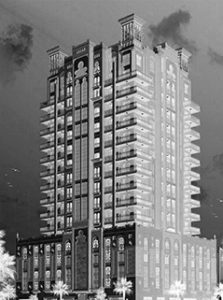Guide To Understanding Property Developer Contracts

When engaging with a property developer in UAE, understanding the intricacies of the contract is vital. These agreements are binding and often complex, filled with legal jargon that can be daunting. This guide breaks down the vital components to help you steer property developer contracts with confidence.
Key components of a property developer contracts:
Project description: The contract should provide a detailed description of the project, including the location, type of property, and the specific units or spaces being developed. This section ensures you understand exactly what you are investing in.
Payment terms: This section outlines the payment schedule, including deposit amounts, installment plans, and the final payment upon completion. It is essential to be clear on these terms to avoid any financial surprises.
Construction timeline: A well-defined construction timeline, including start and completion dates, is key. This helps you plan accordingly and hold the developer accountable for any delays. Ensure the contract includes provisions for what happens if the timeline is not met.
Specifications and standards: The contract should detail the construction specifications and standards, including materials, finishes, and any special features promised by the developer. This ensures the property meets your expectations upon completion.
Variations and changes: Understand the process for making any variations or changes to the agreed-upon plans. This section should outline how changes are requested, approved, and any associated costs.
Legal and financial protections:
Escrow accounts: An escrow account is a third-party account where funds are held until certain conditions are met. This protects both the buyer and developer, ensuring that funds are only released when agreed milestones are achieved.
Penalties for delay: The contract should include penalties for delays in completion. These penalties provide financial compensation if the developer fails to deliver the property on time, incentivizing timely completion.
Warranty and defects liability: A good contract will include a warranty period during which the developer is responsible for fixing any defects that arise. Understanding the length of this period and what is covered can save you from unexpected repair costs.
Due diligence and negotiation:
Legal advice: Always seek legal advice before signing a property developer contract. A lawyer can help you understand the terms and ensure your interests are protected.
Negotiation: Don’t be afraid to negotiate the terms of the contract. Many aspects, such as payment schedules or penalty clauses, can be adjusted to better suit your needs.




